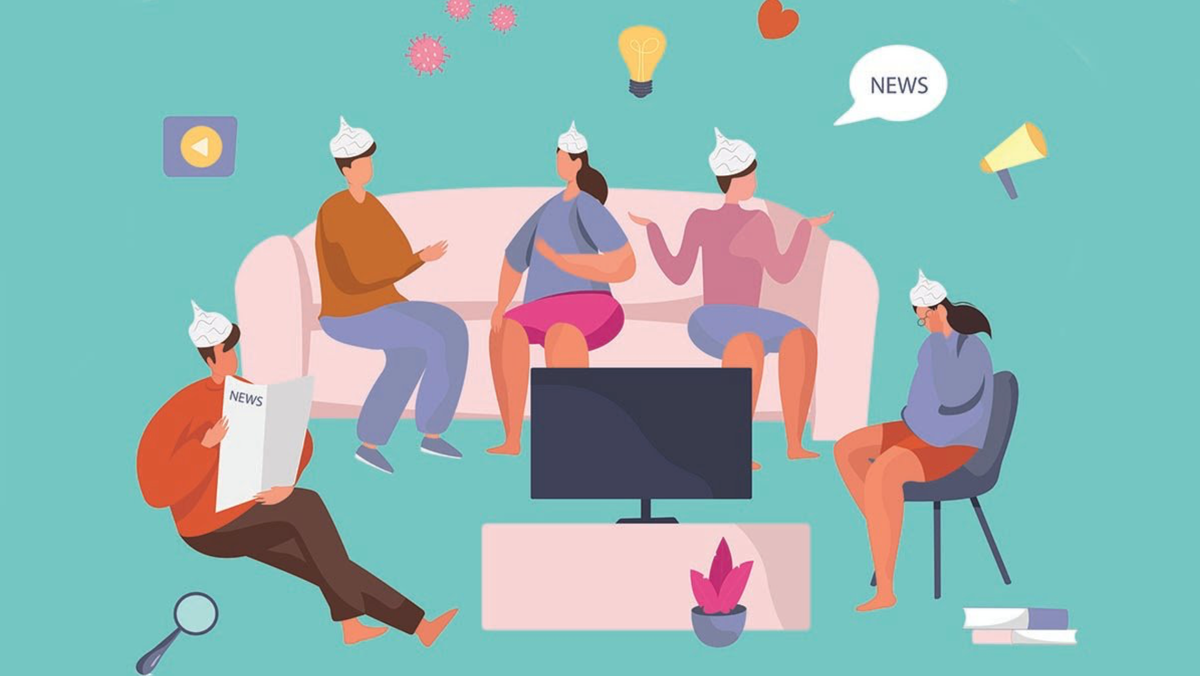Why our brains are primed to believe in conspiracy theories

The world is a strange place. Or rather, the internet is a stranger place. Why? Because the internet has an uncanny ability to allow ideas, beliefs and good old conspiracy theories to swirl endlessly around the interwebs, being picked up, remixed, and broadcasted out to anyone that would listen.
But conspiracy theories are nothing new. Some of my favourites I found researching this newsletter:
- The earth is hollow, and aliens live inside.
- Paul McCartney is dead.
- Finland doesn't exist.
- King Charles is a vampire.
- My personal favourite, Meghan Markle is a robot.
But why are they so catchy? Why do we all secretly want to believe at least some of them are true, and that we're all being secretly fooled? Turns it out we're far more likely to trust in our emotions and feelings around a subject, instead of facts and data.
Say it ain't so 😷
According to research from the University of California, Berkeley, published in the journal Open Mind in 2018, people’s beliefs are more likely to be reinforced by the positive or negative reactions they receive in response to an opinion than by logic, reasoning and scientific data.
Essentially, if someone really disagrees with you, or really agrees with you, it creates a form of affirmation that cements your beliefs.
“If you think you know a lot about something, even though you don’t, you’re less likely to be curious enough to explore the topic further, and will fail to learn how little you know”, says the study’s lead author Louis Marti.
British psychologist Karen Douglas and her colleagues believe there are three key reasons why a person will look for conspiracy theories and hang on to them, even in the face of overwhelming evidence.
People seek certainty and understanding 🔭
Uncertainty is an unpleasant state, so our brains work hard to find out a reason for why something is happening. It's why we believe simple things like:
- It’s raining because I always have the worst luck.
- He gave me the cold shoulder because he can’t stand it when he doesn’t get his way.
- You can’t understand what I’m saying because you’re just not listening.
These ideas give us a sense of comfort, and are, for the most part, harmless. However, these false beliefs, when left unchecked, can become ideas that we have a vested interest in maintaining. One of the reasons could be because we feel we are an unlucky person and to challenge that would be to challenge that belief we might have held for a really long time. Conspiracy theories are no different.
People have put time and effort into understanding the conspiracy-theory explanation for the event, whether by reading books, going to web sites, or watching TV programs that support their beliefs. As that false belief grows, it provides greater comfort in the face of uncertainty and becomes harder to dislodge.
We want control and security 🔒
People need to feel they’re in control of their lives. Most of us, for example (me included), feel safer when we're the driver in the car rather than a passenger. The idea of being able to control our destiny is a powerful one.
Similarly, conspiracy theories can give their believers a sense of control and security. This is especially true when the alternative account feels threatening. Take global warming as an example.
If global temperatures are rising catastrophically due to human activity, then I’ll have to make painful changes to my comfortable lifestyle. But if pundits and politicians assure me that global warming is a hoax, then I can maintain my current way of living. This kind of motivated reasoning is an important component in conspiracy theory beliefs.
We all want to feel good about ourselves 💆
Research shows that people who feel socially marginalized are more likely to believe in conspiracy theories. We all have a desire to maintain a positive self-image, which usually comes from the roles we play in life—our jobs and our relationships with family and friends.
When we know we make a positive difference in the lives of others—as parent, spouse, friend, teacher or mentor—we see our own lives as worthwhile, and we feel good about ourselves.
When we don't feel good about ourselves however, and we feel socially excluded, we're tempted to seek out ideas to give us a sense that we're the holders of privileged knowledge. Most people who believe global warming is real or that vaccines are safe don’t do so because they understand the science. Rather, they trust the experts.
People who don't, often do so because that opinion can elevate their feelings of importance in a group or family setting. It can help people feel good about themselves because they feel they're helping others understand the 'truth'.
While the research helps pave the path for us to better understand why we believe in conspiracy theories, there is little research on whether these beliefs do make the believers feel better about themselves.
Are they chasing the conspiracy dragon? That all depends on what you believe.
Ok, where can I learn more? 📚
- Karen Douglas' work on why we believe in conspiracy theories.
- Bill Nye and other big brain thinkers wade into the world of conspiracy theories.
- Conspiracy Theories - philosopher Quassim Cassam takes a long hard look at conspiracy theories and how they can lead to the breakdown in trust in institutions built to keep us safe.
